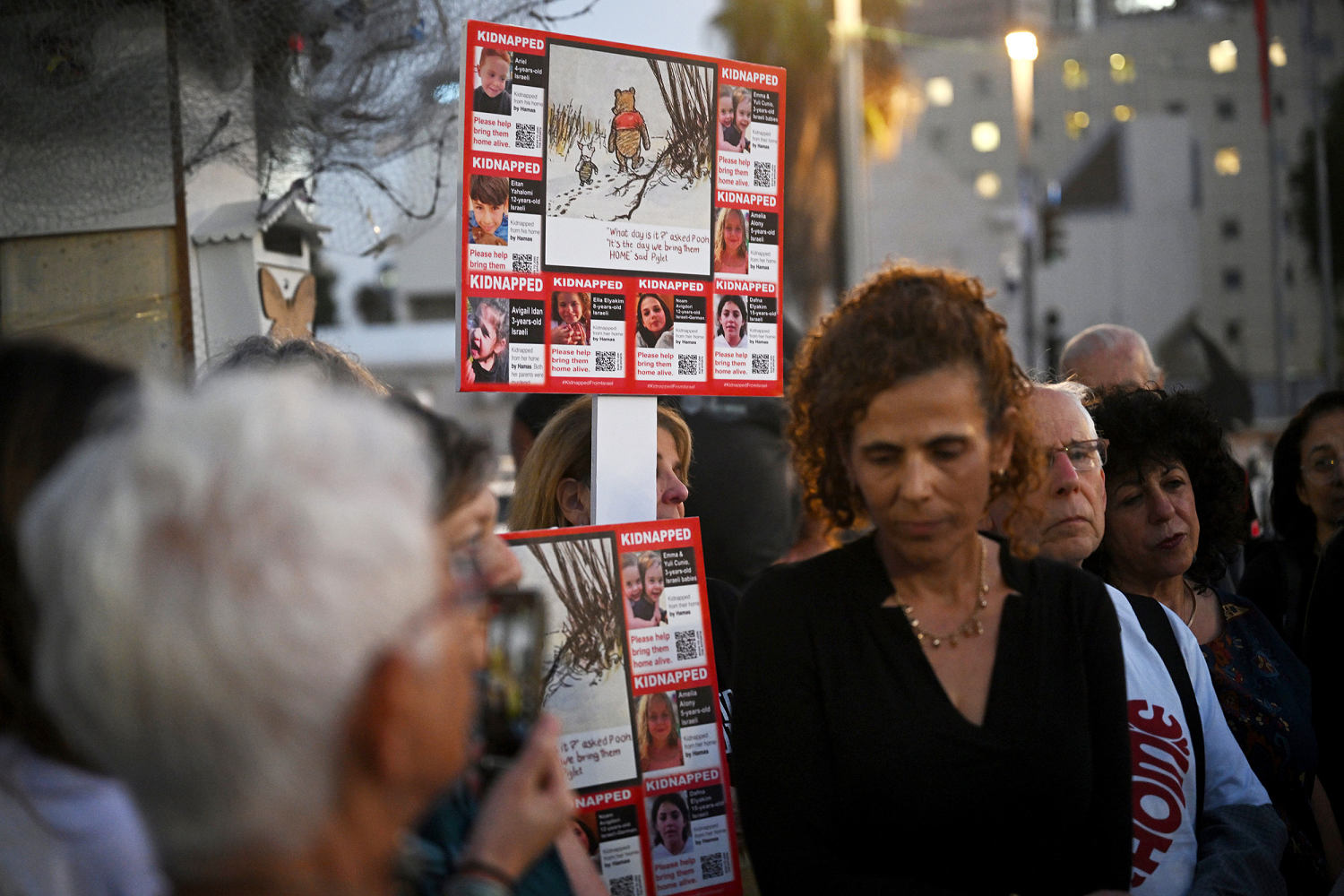

In the push and pull between Israel’s two stated war goals — destroy Hamas and free the hostages held in Gaza — this week the needle swung toward the latter, temporarily at least, with an agreement to pause the fighting and swap prisoners.
It’s been welcomed across much of Israel and internationally, a chance not only to secure the release of some women and children snatched from Israel on Oct. 7, but also to pause the fighting in the Gaza Strip that has so far killed more than 14,000 people.
But even in Israel, a country united in grief and defiance by Hamas’ terror attacks, the deal exposed divisions in how to balance the two goals. Hard-right members of the Israeli government are opposed to any cessation in fighting, while the victims’ families who welcomed the deal are calling for a longer pause to free more people.
It is a tension that’s pulling national opinion to extremes. The political right says there should be no negotiations with Hamas, favoring a military-only solution to the conflict and hostage impasse. It’s not a fringe view: In a poll by the Israel Democracy Institute earlier this month, 22% backed this hard-line approach.
But for many of the hostages’ families, a military solution comes at the expense of hostages. For weeks, campaigners have been calling for a cease-fire so negotiations to return their loved ones can take precedence.
“It feels like it’s not the first priority here, which is maddening,” said Yonatan Zeigen, whose mother, Vivian Silver, was originally believed to have been kidnapped by Hamas but was actually killed in the attack. “When people say, ‘No cease-fire without all the hostages’” being returned, he told NBC News, that’s actually like saying, “Take your time, win — whatever that means — and we’ll see who’s left of the hostages.”
The idea of prioritizing negotiations, including discussing pausing the fighting, has grown in support from 17% in mid-October to 22% earlier this month, the Israel Democracy Institute poll said.
Earlier this week, these two extremes came to a head when Itamar Ben Gvir, Israel’s national security minister, was embroiled in a shouting match with some of the families during a parliamentary committee session.
Ben Gvir — who represents the most extreme wing of Prime Minister Benjamin Netanyahu’s hard-right coalition government — had been involved in a bill trying to introduce the death penalty for terrorists. The family members begged him and fellow party members to drop the bill, arguing it had no chance of passing and only endangered their relatives still inside Gaza.
After the deal was announced Thursday, Ben Gvir posted on the social media platform X that the agreement was a “disaster” while accusing the war Cabinet — of which he is not a member — of “idiocy.”
Ben Gvir is not alone in opposing prisoner swaps. An October poll by the Israel Democracy Institute found that 45% opposed the idea, while 40% favored it.
“There is some contradiction between releasing the kidnap victims and continuing the war,” said Meir Sheetrit, a former senior politician who has held more than half a dozen Cabinet positions, including in past Netanyahu administrations.
“Sure, the prices could be high,” he said, referring to the families’ fear that their imprisoned relatives could be killed in the fighting. “But I am sure the prices will go up in the future. You will see more demands from Hamas to get as much as they can.”
Polls consistently show that the vast majority of Jewish Israelis support their military’s response to Oct. 7, a campaign to “destroy” Hamas by aerial bombardment and now a ground assault. And everyone wants to see the return of the 240 or so hostages.
“Any attempt to put these two goals as contradicting each other, or prioritizing them, is a very unpleasant if not ugly political manipulation,” said Moty Cristal, a former IDF hostage negotiator, referring to what he sees as attempts by the populist right to capitalize on the crisis.
Freeing the captives “is not only a goal,” he said, it is “our source of legitimacy, our motivation, and why our soldiers are out there, putting their lives at risk, including during this pause, in order to bring the hostages back.”
Netanyahu said in a speech Wednesday night there was no tension between these aims.
“The war continues. We will continue it until we achieve all its goals,” he said. “Return all kidnap victims; eliminate Hamas.”
Still, the sense that one comes at the expense of the other remains raw. On Monday, Ben Gvir posted a photo on X of himself hugging Gil Dickmann, whose cousin, Carmel Gat, was taken hostage by Hamas on Oct. 7. “Take your hands off me,” Dickmann responded on X. “I told you: Don’t hug me.”
“Everyone sees that you are making a circus on the blood of our families,” Dickmann said. “Stop.”